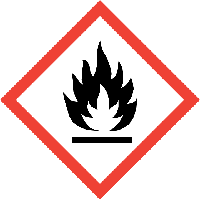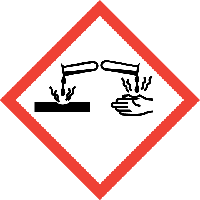- Materials
- Forms
-
Services
-
Services
-
-
Sectors
-
Supporting cutting edge research and development with advanced materials to your needs.
High performance materials for extreme conditions.
Innovative and lightweight materials with high mechanical properties and durability.
Materials used in chemical engineering from consumables to innovative solutions.
Advanced materials characterized by high electrical or insulation performance.
High quality materials for renewable energy.
Biocompatible and biodegradable materials to the highest standards.
High purity, biocompatible materials for high performance devices and applications.
High purity metals and alloys in various forms and crucibles suitable to your needs.
State of the art materials for the next generation of technologies.
High performance materials for extreme conditions.
Durable materials for corrosive environments.
Foils, disks or windows across a range of materials to facilitate your innovation.
Polymers, metal foils, and sustainable materials for your packaging needs.
Your requirements for unique products and attributes will be met across our 170,000+ product range and customization capabilities.
High-quality materials across branded products in various forms including rods, wires, and foils support space technology needs.
Highest quality materials to support your need for small-quantity specialist materials such as graphite and lithium compounds.
High purity materials to improve the reproducibility and reliability of your evaporation processes.
Academia Aerospace & Aeronautical Automotive Chemical Manufacturing Electronics and Bioelectronics Fuel Cells & Hydrogen Life Science and Biomaterials Storage & Batteries Vacuum Technology Mining and Metals Nanomaterials Nuclear Oil & Gas Optics Packaging Research & Labs Space Technology Medical Devices
-
-
Resources
-
Find out our latest news.
Read our latest insights, and opinions.
Discover our Innovation Discovered podcasts on innovation, products, interesting topics, and more.
Find out how we've worked with our partners
Our latest updates on what we are doing, find out more.
Find out more about us and the great roles we have available for talented individuals. Find out more.
Take a look at our global distributors.
Explore our FAQ resource to help answer your key questions.
Gain a clearer picture of the language used in scientific study
-
- About Us
Formula: Cs
Form: Pellet/Lump
Material: Caesium
CAS Number: 7440-46-2
Commodity: Metals
Purity:
99.9%
Maximum Lump Size:
5mm
Melting Point:
28.5°C
Hazard Pictogram:
GHS02, GHS05
Caesium Pellets offered by Goodfellow are high-purity elemental caesium shaped into small, spherical pellets. Caesium has a low melting point of 28.5°C and is extremely reactive due to its high electropositivity. The pellets are packaged under argon to prevent oxidation. Typical applications for caesium include photoelectric cells, where the metal's conductivity and photoelectron work function of 1.95 eV make it well-suited to convert light into electric current. Caesium pellets also serve as getter materials for vacuum tubes, reacting with trace gases to maintain hard vacuum environments. As part of Goodfellow's expansive metals inventory, the caesium pellets enable research and prototyping needs across sciences and engineering disciplines.

Flammable

Corrosive
Tolerances
Pellet/Lump
| Maximum Lump Size | Nominal |
|---|
Material Properties for Metals
Atomic Properties
| Element | Value |
|---|---|
| Atomic number | 55 |
| Crystal structure | Body centred cubic |
| Electronic structure | Xe 6s¹ |
| Valences shown | 1 |
| Atomic weight( amu ) | 133 |
| Thermal neutron absorption cross-section( Barns ) | 29 |
| Photo-electric work function( eV ) | 2.14 |
| Atomic radius - Goldschmidt( nm ) | 0.27 |
| Ionisation potential( No./eV ) | 1/ 3.89 |
| Ionisation potential( No./eV ) | 2/ 25.10 |
Mechanical Properties
| Element | Value |
|---|---|
| Hardness - Mohs | 0.2 |
| Material condition | Polycrystalline |
Electrical Properties
| Element | Value |
|---|---|
| Electrical resistivity( µOhmcm ) | 20@20@20°C |
| Temperature coefficient( K⁻¹ ) | 0.0044@0-100°C |
Physical Properties
| Element | Value |
|---|---|
| Boiling point( C ) | 705 |
| Density( gcm⁻³ ) | 1.9@20°C |
Thermal Properties
| Element | Value |
|---|---|
| Melting point( C ) | 28.5 |
| Latent heat of evaporation( J g⁻¹ ) | 611 |
| Latent heat of fusion( J g⁻¹ ) | 15.78 |
| Specific heat( J K⁻¹ kg⁻¹ ) | 230@25°C |
| Coefficient of thermal expansion( x10⁻⁶ K⁻¹ ) | 97@1-26°C |
Other Customers Purchased
-
Yttrium Pellets Formula: Y
Percentage Purity: 99.9%
Maximum Lump Size: 50mm
Weight: 50g
CAS Number: 7440-65-5
UOM Code: 113-102-75
eachStarting at £130.95
Discounts applied for volume purchases -
Woods Metal Pellets Formula: Bi50/Pb25/Cd12.5/Sn12.5
Maximum Lump Size: 310mm
Weight: 1000g
UOM Code: 572-354-39
eachStarting at £249.23
Discounts applied for volume purchases -
Zinc Sulfide Pellets Formula: ZnS
Percentage Purity: 99.9%
Maximum Lump Size: 5mm
Weight: 50g
CAS Number: 1314-98-3
UOM Code: 087-370-83
eachStarting at £150.44
Discounts applied for volume purchases -
Zirconium Pellets Formula: Zr
Percentage Purity: 99.2%
Maximum Lump Size: 25mm
Weight: 1g
Type: Sponge
CAS Number: 7440-67-7
UOM Code: 121-660-62
eachStarting at £147.80
Discounts applied for volume purchases -
Ytterbium Pellets Formula: Yb
Percentage Purity: 99.9%
Maximum Lump Size: 25mm
Weight: 900g
CAS Number: 7440-64-4
UOM Code: 195-736-09
eachStarting at £211.33
Discounts applied for volume purchases -
Zinc Pellets Formula: Zn
Percentage Purity: 99.99%
Maximum Lump Size: 10mm
Weight: 200g
CAS Number: 7440-66-6
UOM Code: 214-480-21
eachStarting at £103.53
Discounts applied for volume purchases









